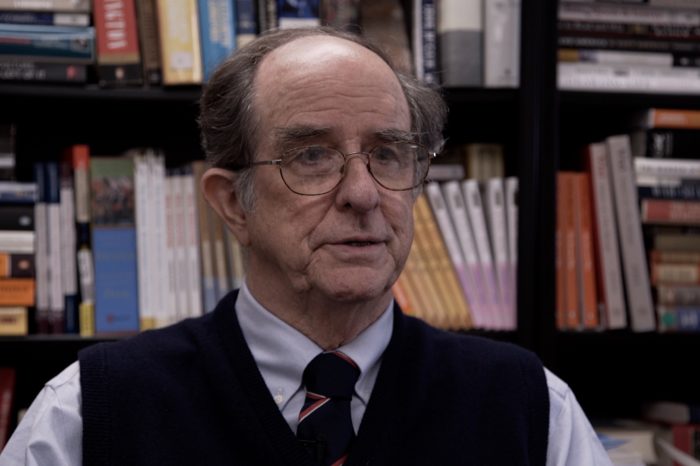Video Highlights Long-Running Journal that Publishes History Essays by High School Students
BOSTON – A new video highlights the work of Will Fitzhugh, who for years has operated The Concord Review, a journal that publishes history essays by secondary students from across the country and around the globe.
“Will Fitzhugh has dedicated his career to disseminating the superb work of high school students to their peers and the world,” said Jamie Gass, who directs Pioneer Institute’s Center for School Reform and is also a member of The Concord Review board. “His goal is to inspire as many students as possible by putting excellent history writing in front of them.”
In well over 100 issues since 1987, the Review has thus far published nearly 1,300 essays by students from 45 states and 40 foreign countries. There are no length or subject requirements beyond the history focus, which maximizes students’ freedom to pursue their interests.
Fitzhugh asks his student authors to let him know where they will be attending college. Harvard, Stanford, Yale, and Princeton are the most common destinations.
The Concord Review has attracted a number of high-profile supporters, including the late American Federation of Teachers President Albert Shanker, who wrote two columns about it in The New York Times after reading an early issue of the journal. Historian Arthur Schlesinger, Jr. said The Concord Review “should be in every high school in the land.”
Other Concord Review boosters include Pulitzer-Prize winning historian David McCullough, education historian Diane Ravitch and Jay Mathews of The Washington Post.
Earlier this year, Fitzhugh co-authored a review of Massachusetts’ new K-12 academic standards in U.S. History. In June, Pioneer Institute published the results of a poll showing strong support among legislators, parents and teachers for reinstating a state requirement that students pass a U.S. History MCAS test to graduate from high school.
About Pioneer
Pioneer Institute is an independent, non-partisan, privately funded research organization that seeks to improve the quality of life in Massachusetts through civic discourse and intellectually rigorous, data-driven public policy solutions based on free market principles, individual liberty and responsibility, and the ideal of effective, limited and accountable government.



